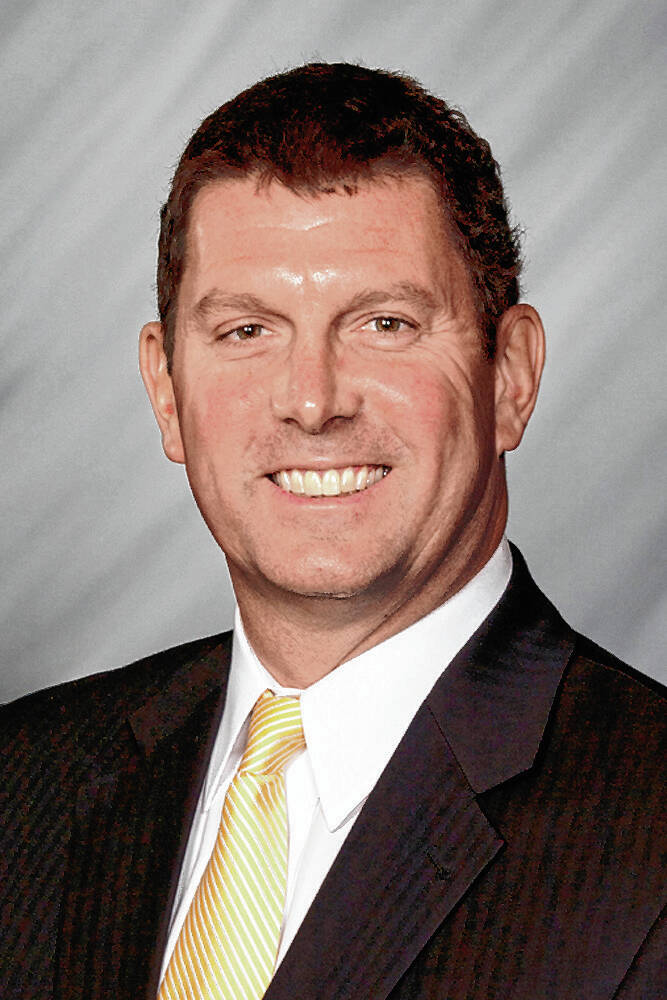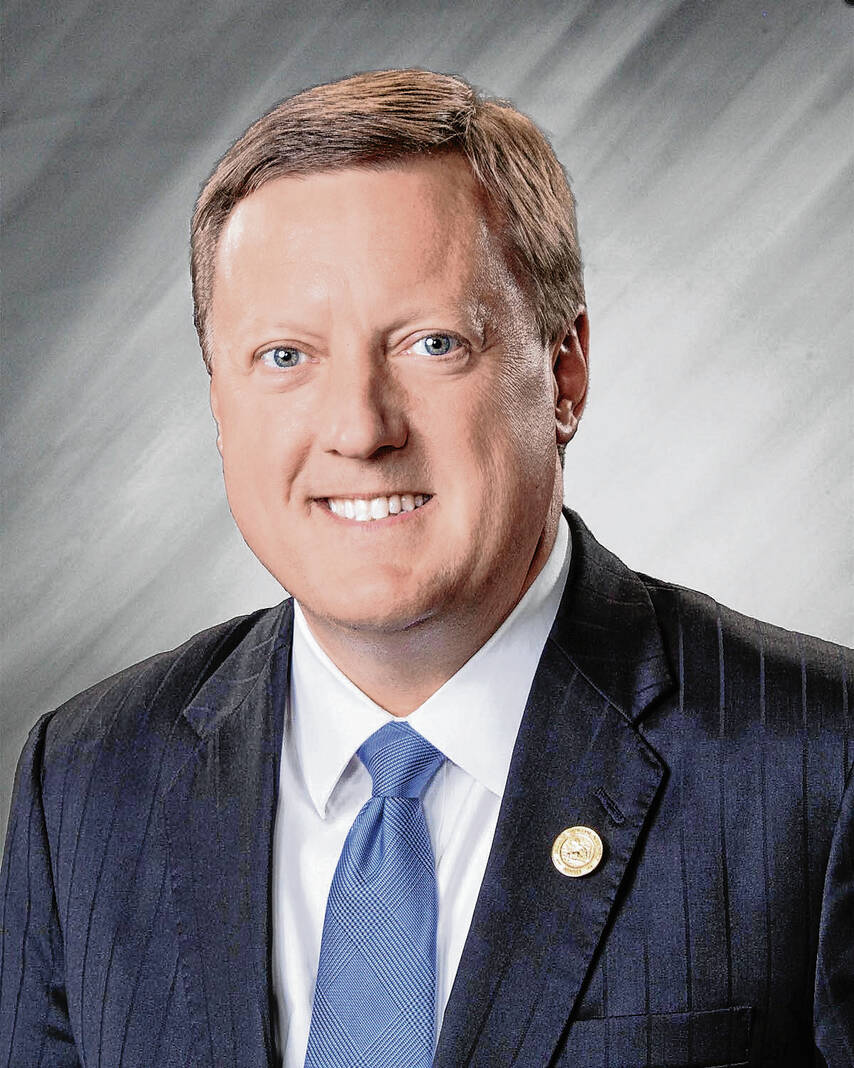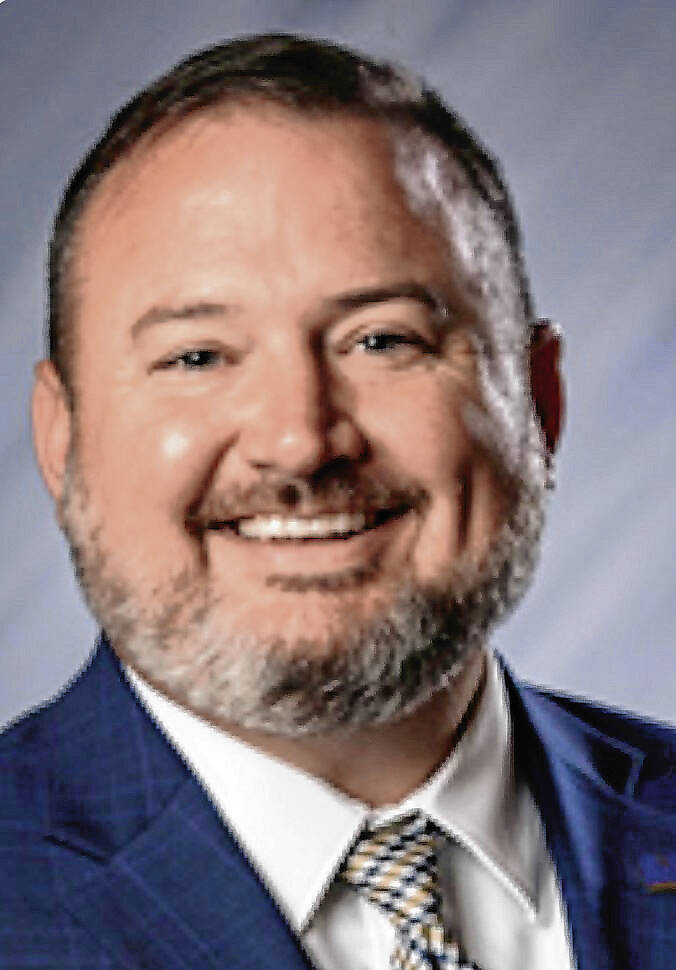
Lucas

Koch

Hall
There’s no doubt among most state lawmakers that the biennial budget will be the major focus of the upcoming session of the Indiana General Assembly.
A two-year spending plan is the only essential legislation that must be approved by the state legislature. And this year’s budget is expected to be so complex that the legislative session, which begins Jan. 9, may be extended into May.
Nevertheless, most lawmakers will submit bills they’ve authored or formally support or disavow measures written by others. That includes some of the state lawmakers most associated with Jackson County: District 62 Rep. Dave Hall, R-Norman, District 69 Rep. Jim Lucas, R-Seymour, and District 44 Sen. Eric Koch, R-Bedford.
Lucas, whose district includes all of Jackson County with the exception of Carr, Owen, Pershing and Salt Creek townships and portions of Bartholomew, Scott and Washington counties, predicts health care costs and education also will be top concerns of state legislators over the coming months.
“Indiana is lagging behind most of the country in keeping health care costs down,” he said. “I don’t know if it’s the insurance industry, the hospitals or what. But we need to look deeply into the causes.”
But the Seymour Republican says he doesn’t plan to introduce bills regarding that particular topic.
Instead, Lucas says he is currently “reaching out to fellow legislators to see what they have going on and what might benefit his district.”
“There may be a little horse-trading going on in terms of co-authoring or co-sponsoring,” the lawmaker said.
The representative, however, said he does plan to introduce either a standalone bill or an amendment that will essentially create a new type of educational savings account for parents.
A program called CollegeChoice 529, which has served as Indiana’s tax-advantaged savings plan designed to help people easily and affordably save for college, has been around since 1997. Nevertheless, Lucas said his proposal will expand the current system and allow parents to be more in charge of their child’s education.
“We are also continuing to talk about cutting taxes,” Lucas said. “I know the Senate will do a deep dive on possibly eliminating state income taxes.”
But due to inflation and a shaky economy, he says the General Assembly must remain cautious in developing a biennial budget. Lawmakers also must remain concerned about the high level of federal spending that Lucas said “leaves us in a reactionary position.”
Finally, Lucas is predicting Hoosiers will see progress made this year in the legalization of medical cannabis. He cited 38 states that allow marijuana use for medical purposes, adding all of Indiana’s neighbors have experienced evolving views on the controversial topic.
Illinois and Michigan now allow cannabis for both medical and recreational purposes, while Ohio now allows medical cannabis, Lucas said. He also said Kentucky has a new law that decriminalizes possession of eight ounces of cannabis or less.
“So Indiana will soon be an island of insanity on this issue if we don’t do anything about it,” Lucas said.
Hall, a freshman lawmaker, said he could have introduced up to 10 bills for the session but decided to focus on three issues, including a couple he picked up on while campaigning, until he can get a better sense of the ins and outs of the legislature.
The broadest bill he authored involves requiring schools to offer personal finance curriculum for students.
It’s something he became aware of through the Foundations in Personal Finance program recently offered to 250 students at Brownstown Central High School.
The program established by Ramsey Education in 2008 is designed to teach high school students about how to budget, save and avoid debt. It also includes lessons on going to college debt-free, paying cash for their first car or even helping their parents learn about the importance of an emergency fund.
Hall said he thinks it’s an important program because students completing it are more likely to enter adulthood without debt, worry and stress.
“It teaches how to balance a checkbook, count money and a lot of things some adults don’t know how to do,” he said. “They can avoid a lot of drama later in life.”
Hall said he likes the chances for that legislation to pass.
One of the remaining two bills he has authored is very specific to Monroe County, and the other is more specific to Brown County. District 62 includes Owen, Pershing and Salt Creek townships in Jackson County and portions of Brown and Monroe counties.
The Monroe County measure would deal with a Monroe County income tax that is controlled by the Bloomington City Council.
While on the campaign trail, Hall said he heard concerns about “taxation without representation” from a lot of people who don’t live within the city limits of Bloomington.
“That’s something I didn’t know about until I started talking to people on their porches,” he said.
In reference to the second bill, Hall said 35% of the land in Brown County belongs to the state or federal government.
When people visit or stay in those areas, they often double to even triple Brown County’s population, creating a burden for those providing public safety.
His bill would create a user fee on top of the gate visitors now pay to enter Brown County State Park with the additional funding raised being used for providing public safety throughout the county.
The measure would exempt those with season passes and people living in Brown County.
Hall’s first day on the job was Nov. 22 when lawmakers gathered to organize for this year’s session. He also was sworn in that day, although he had to wait until Dec. 20 before a recount of votes confirmed his victory by 74 votes over Democrat Penny Githens of Bloomington.
He said there are a lot of important topics that will be debated during the session, but he also knows that sometimes, government is not the answer to an issue.
Koch said the Senate Majority Caucus agenda for the 2023 session will not be announced until this week.
He said since this is a budget year, it will be the primary focus of the session.
“The budget is biennial and therefore must be based on revenue forecasts, which in turn are based upon economic forecasts, which at this time are uncertain,” Koch said. “We are fortunate to have a surplus and were right to not spend it on new programs as many wanted. We are now going to need it to weather the potential economic downturn.”
As chairman of the utilities committee, Koch said he will be focused on making sure Hoosiers have reliable and affordable utility service.
And as ranking member of the judiciary committee, he said he plans to work closely with local prosecutors and judges and will be focused on making sure the state’s court system has the tools and resources it needs to serve Hoosiers and keep communities safe.
“For example, I will be introducing a constitutional amendment that will allow judges to consider dangerousness in setting bail,” Koch said. “I will also be filing legislation to provide training resources to allow local law enforcement officers to assist federal agents in illegal immigration enforcement. Over 5 million illegal immigrants have entered the country during the Biden administration, and many are engaged in human trafficking and fentanyl distribution in our communities.”
Koch said he also will be introducing legislation to align school board campaign filing deadlines with other offices — which are much earlier — to provide more time for voters to learn about the candidates and their positions on issues.
“I will also have legislation to require state pension funds to be invested to provide the highest rate of return for our retirees and not be used by investment managers to advance political agendas,” he said. “I would also invite any student age 13 or over to participate in the Senate Page Program for a day during session. Interested students can contact my office or go to our website for more information.”
